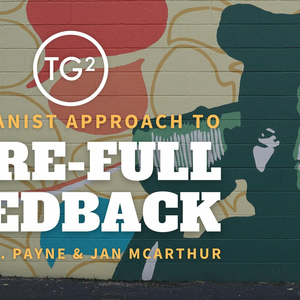
A Womanist Approach to Care-full Feedback — Teachers Going Gradeless
- Article
- Jan 27, 2023
- #Education #Feminism
As the importance of feedback to student learning has become better understood over recent years, two important aspects have emerged. The first is that feedback should be dialogical...
Show More